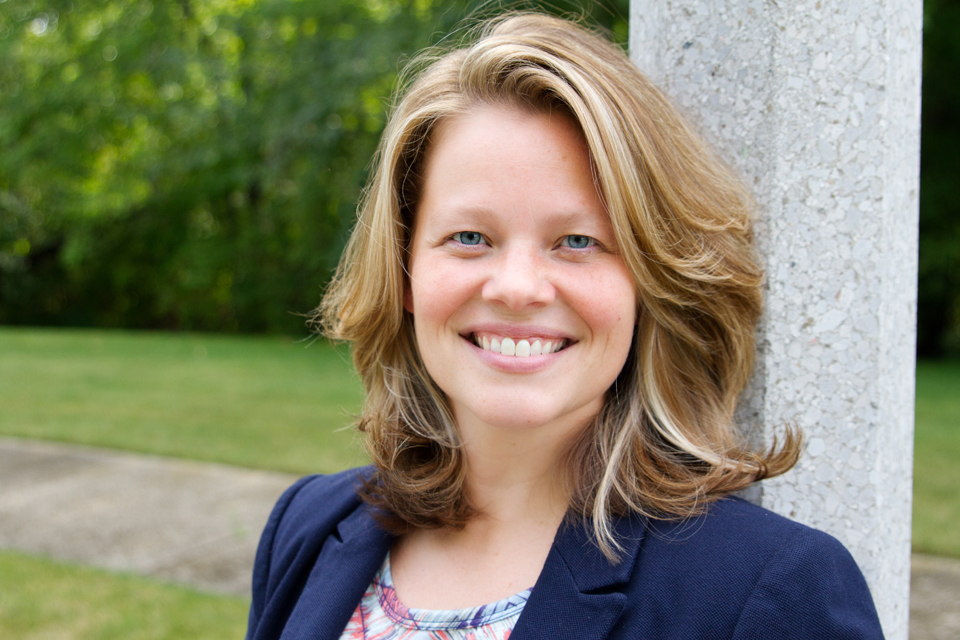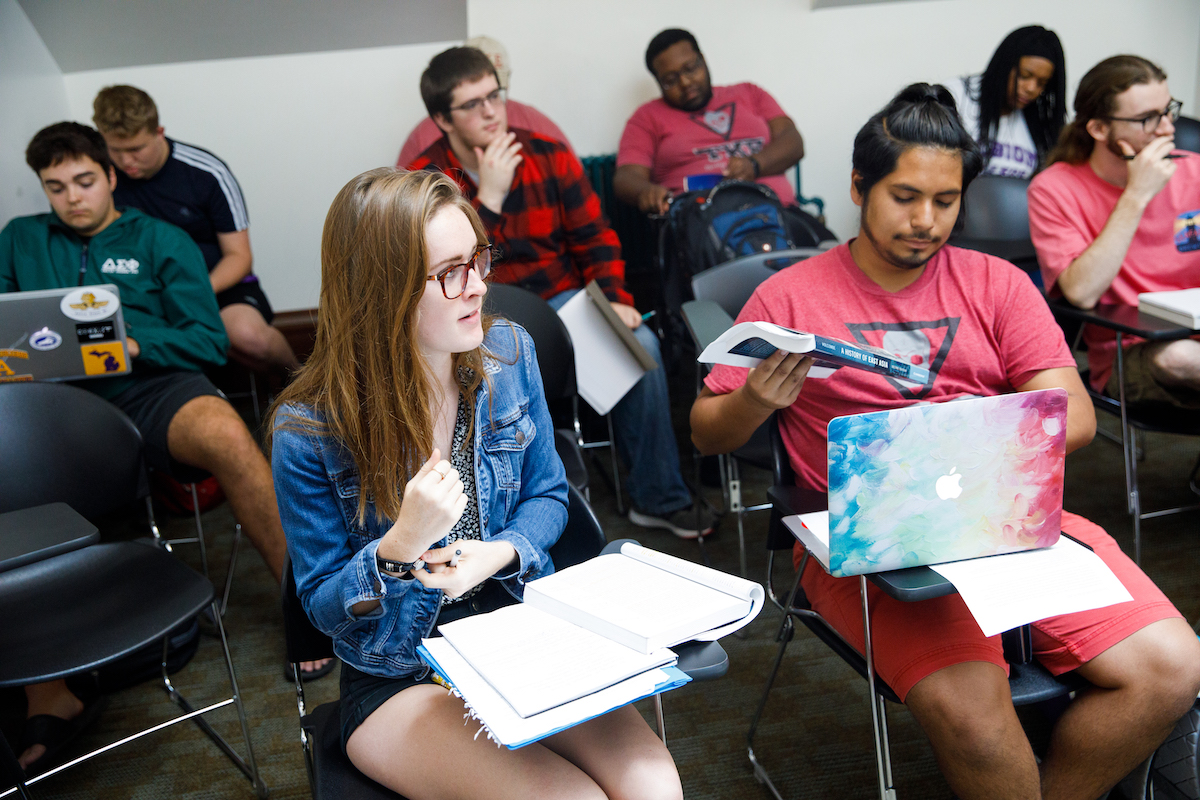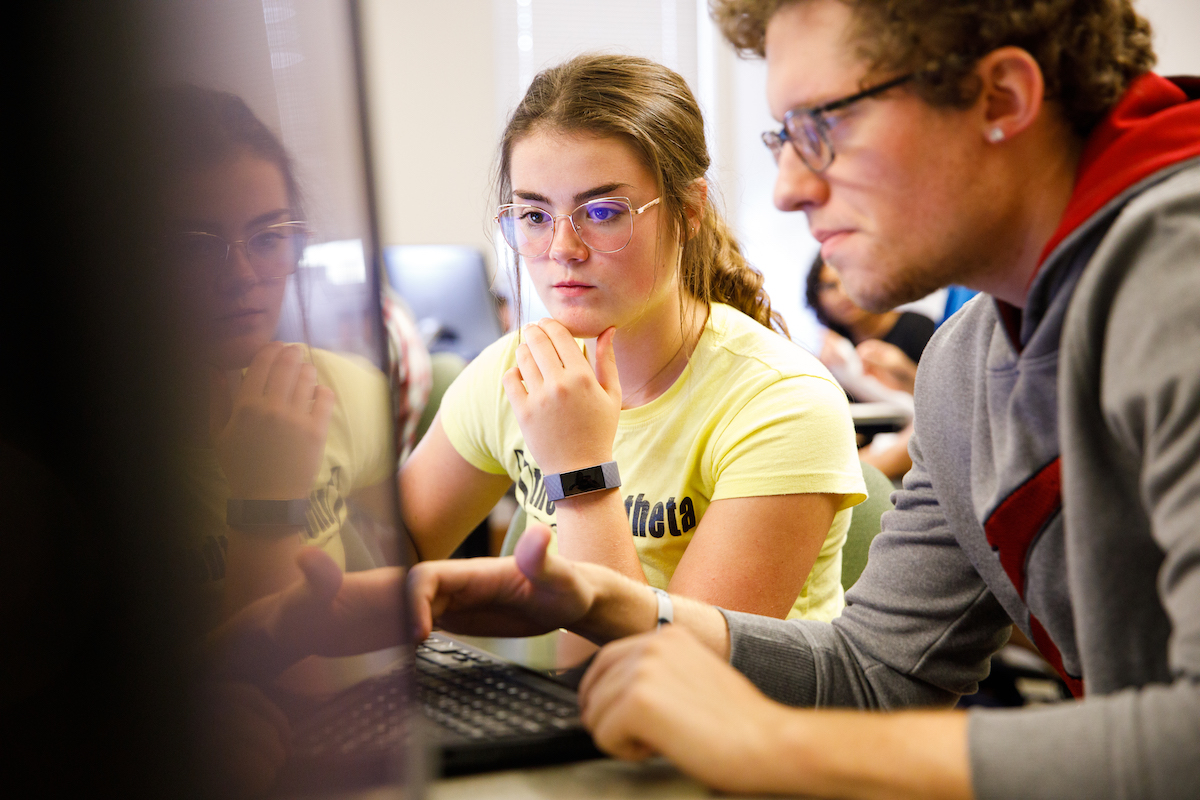Albion College’s Baker Named American Council on Education Fellow
Related Posts
Connect With Us

By Ward Mullens
Vicki Baker, professor of economics and management at Albion College, is considered an expert on helping faculty members figure out what’s next in their careers. When she is not teaching, she devotes much of her time helping others find their career advancement and leadership opportunities. She has written several books about the topic.
Being named as an American Council on Education (ACE) Fellow for 2023-24, she will now turn that focus on her own career.
“I guess it kind of hit me that my career has been focused on faculty and helping them develop leadership opportunities. But, I have not really thought about the same thing for myself,” said Baker, who has been teaching at Albion for 16 years. “I had not asked myself what was next and I realized that I needed some mentorship and professional development. I am extremely excited about this opportunity.”
Baker is one of only 36 people in the country to earn the ACE designation.
“The ACE Fellowship is both a high honor and a professional development experience,” said Lisa Lewis, interim provost at Albion College. “Dr. Baker’s selection speaks volumes about her talents as a teacher, scholar and leader. It is wonderful to have Albion represented in this class of ACE Fellows. Knowing Vicki, she will contribute as much as she gains through this experience.”
“Dr. Baker’s participation in this professional development program is made possible by the gifts to Albion College that established the E. Maynard Aris Professorship in Economics and Management and our Hewlett-Mellon Faculty Development Funds. Albion College benefits from the knowledge and experience that Dr. Baker gains through this fellowship,” Lewis said.
Since its inception in 1965, the ACE Fellows Program has strengthened institutions in American higher education by identifying and preparing more than 2,500 faculty, staff and administrators for senior positions in college and university leadership through its distinctive and intensive cohort-based mentorship model. Of the Fellows who have participated to date, more than 80 percent have gone on to serve as chief executive officers, chief academic officers, other cabinet-level positions and deans.
Baker received her bachelor’s degree from Indiana University of Pennsylvania and her M.B.A., with a concentration in management, from Clarion University of Pennsylvania.
After earning her M.B.A., she accepted a position as an administrator at Harvard Business School, working in their executive education division for nearly three years. While at HBS, she realized she wanted to pursue higher education as a career — on the faculty side. So Baker left Cambridge for State College, Pa., where she earned her master’s in management and organizations and a Ph.D. in higher education administration at Penn State University, teaching management courses in the Smeal College of Business while enrolled.
Baker has written six books in five years about unique issues faced by mid-career faculty in higher education. She currently is on sabbatical preparing to write her seventh book. Her last book was, Managing Your Academic Career: A Guide to Re-Envision Mid-Career, published by Routledge.
“I want to see behind the curtain,” said Baker of what transpires in higher education administration. “What an institution thinks about in the way of career advancement policies and practices. How it all works and how we can be more strategic with academic resources. It is very much a liberal arts approach. I am living what we say matters,” Baker said. “How do we support each other across the academy?”
“The ACE Fellows Program has a proven track record of developing agile leaders, and it fuels the expansion of a talented and diverse higher education leadership pipeline,” said ACE President Ted Mitchell. “ACE Fellows engage in unique learning experiences before returning to their home campuses armed with a fresh outlook and distinct skillset. I am excited to see all that this class accomplishes.”
The program combines retreats, interactive learning opportunities, visits to campuses and other higher education-related organizations and placement at another higher education institution to condense years of on-the-job experience and skills development into a single year.
During the placement, Fellows observe and work with the president and other senior officers at their host institutions, attend decision-making meetings and focus on issues of interest. Fellows also conduct projects of pressing concern for their home institutions and seek to implement their findings upon completion of the fellowship placement.
At the conclusion of the fellowship year, Fellows return to their home institutions with new knowledge and skills that contribute to capacity-building efforts, along with a network of peers across the country and abroad.

